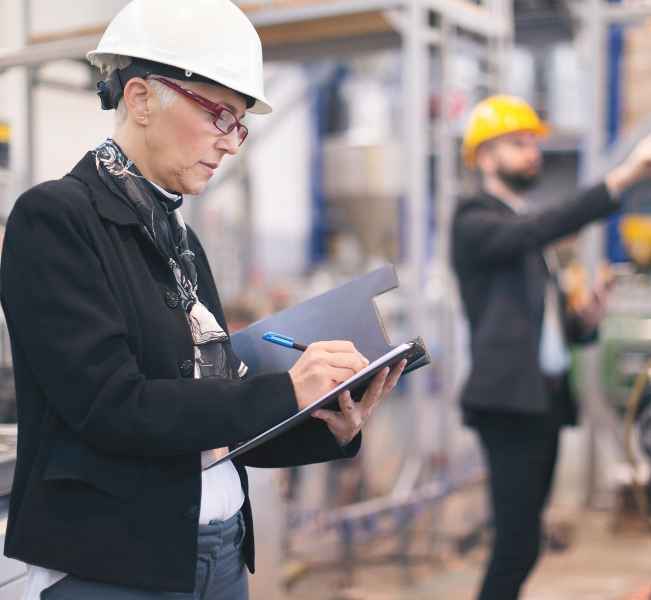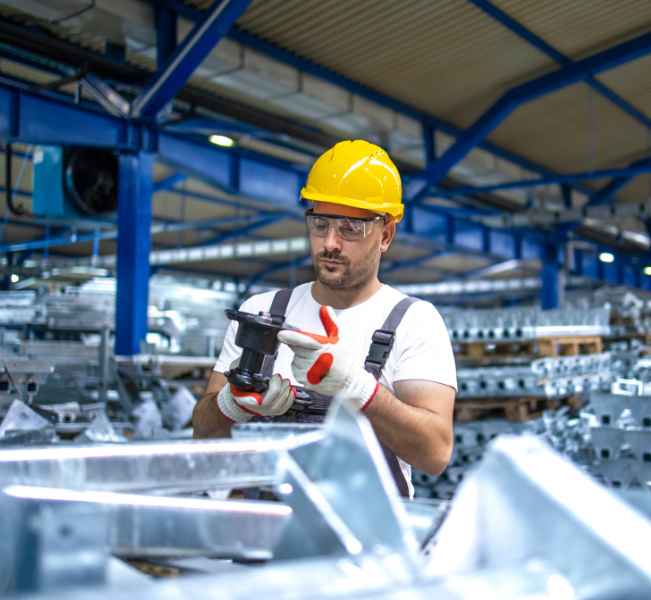
-
By ABS IRON
-
febrero 8, 2024
- 0 Comment
Building with Strength: The Advantages of Quality-Controlled Steel Fabrication
In construction, strength, durability, and precision are non-negotiable. Steel components form the backbone of countless projects, from industrial facilities to architectural landmarks. To ensure these components perform reliably over time, quality control is essential throughout every step of the fabrication process. At ABS Iron, we adhere to rigorous quality standards, guaranteeing that each element we produce meets exact specifications for both structural integrity and aesthetic appeal.
What Is Quality-Controlled Steel Fabrication?
Quality-controlled steel fabrication involves monitoring and verifying each stage of production to ensure that components meet predetermined standards. This includes strict oversight during design, material selection, cutting, welding, and assembly. Quality control measures help detect and correct potential issues early, preventing costly rework and structural failures in the field.
By prioritizing quality, fabricators like ABS Iron provide components that deliver strength and stability for decades to come.
“Strength and reliability are not achieved by chance. They are the result of meticulous planning, precision fabrication, and uncompromising quality control at every step.”
Laura Bennett
Key Advantages of Quality-Controlled Steel Fabrication
1. Increased Structural Durability
Steel is prized for its ability to withstand heavy loads and extreme conditions, but even the strongest materials require precise handling to maintain their integrity. Quality control ensures that steel components meet load-bearing requirements, reducing the risk of deformation, cracking, or failure over time.
- Components are designed and tested to handle specific stress points.
- Welding and joint connections are inspected to ensure maximum strength.
- Material treatments, such as galvanizing, protect against corrosion.
These measures result in long-lasting structures that can endure environmental challenges without compromising safety.


2. Dimensional Precision and Fit
For large-scale projects, even minor deviations in measurements can cause significant installation delays. Quality-controlled fabrication ensures that each component is cut, shaped, and assembled to exact dimensions, allowing for seamless integration on-site.
Benefits of dimensional accuracy:
- Faster installation with minimal need for adjustments.
- Improved alignment and structural stability.
- Reduced labor costs and project delays.
Advanced tools like CNC (Computer Numerical Control) machines and laser cutters enable precise, repeatable production, ensuring that every component fits perfectly within the design framework.
3. Enhanced Safety and Compliance
Projects must comply with strict safety regulations and industry standards. Quality control helps fabricators meet or exceed these requirements by verifying that each component adheres to structural and safety codes.
Key safety measures include:
- Material testing to verify tensile strength and load capacity.
- Inspection of welds and connections for defects.
- Compliance with standards from organizations such as ANSI, AISC, and OSHA.
By ensuring compliance, quality-controlled fabrication helps prevent accidents, liabilities, and legal issues related to substandard materials.
4. Reduced Waste and Costs
Quality control minimizes waste by ensuring that materials are handled efficiently and that components are produced correctly the first time. Detecting defects early prevents costly rework and material loss, ultimately lowering overall project costs.
Additionally, the use of sustainable fabrication practices can further reduce environmental impact by optimizing material usage and recycling scrap steel.
The Role of Technology in Quality Control
Modern technology has significantly improved quality control processes in steel fabrication. Tools such as Building Information Modeling (BIM), non-destructive testing (NDT), and automated inspection systems provide real-time data to identify inconsistencies and ensure precision.
For example, non-destructive testing techniques—such as ultrasonic, radiographic, and magnetic particle inspections—allow fabricators to verify internal component integrity without damaging the material. These technologies enable faster, more reliable quality checks, helping projects stay on schedule.
ABS Iron’s Commitment to Quality Control
At ABS Iron, we understand that our clients depend on us to deliver components that meet the highest standards of performance and safety. Our comprehensive quality control system includes:
- Material Selection: We source only premium-grade steel to ensure strength and durability.
- Precision Engineering: Advanced equipment and skilled technicians maintain strict tolerances throughout the fabrication process.
- In-Process Inspections: We conduct regular quality checks at critical production stages to catch and resolve any issues early.
- Final Testing: Before delivery, all components undergo thorough testing to verify that they meet design and performance requirements.
Our commitment to quality gives clients peace of mind, knowing their projects are built on a foundation of strength and reliability.
Applications of Quality-Controlled Fabrication
Quality-controlled steel components are essential in a wide range of industries, including:
- Commercial Construction: Structural frames, columns, and beams for office towers and industrial facilities.
- Infrastructure Projects: Bridges, railways, and other large-scale public works.
- Architectural Design: Custom decorative elements such as railings, staircases, and facades.
- Residential Developments: High-quality steel components for modern homes and multi-family housing.
By maintaining consistent quality, these projects achieve both functional and aesthetic excellence.
Conclusion
Quality-controlled steel fabrication is the foundation of strong, reliable, and safe structures. By investing in precision, durability, and compliance, fabricators like ABS Iron help clients minimize risks, reduce costs, and deliver exceptional results. Whether you’re building a large industrial facility or a custom architectural project, choosing a partner with a proven commitment to quality makes all the difference.
At ABS Iron, we’re ready to support your vision with world-class fabrication and quality assurance services.
